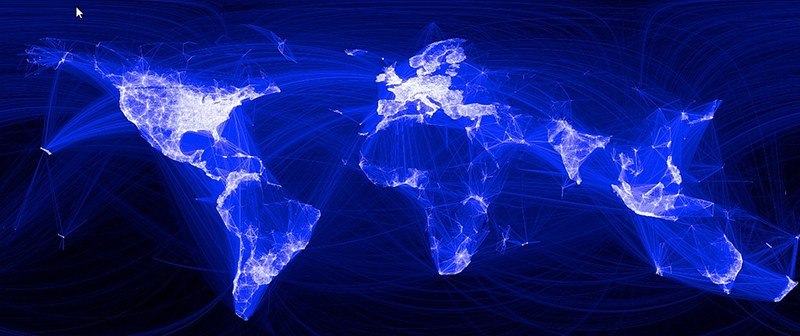
The Eyes may actually be able to get a bit more done than they could when they were in the shadows. In September 2018 they made the news for a joint memo that the Five Eyes nations issued saying they were looking at getting into the business of breaking encryption, either by their own joint research or by legislative methods, such as forcing companies to provide access to their encrypted products or build in backdoors. That’s clearly not great for privacy and could be a big problem for cybersecurity, too.
In the future, though, these alliances could affect some big public policy and tech issues.
In general, though, their technology can be generally described as invasive monitoring tools capable of collecting the vast majority of information that is sent over any sort of line/signal or stored on any Internet-connected device.
The regular citizens’ data is routinely swept up, stored, analyzed, and shared under the program, which many argue is quite an invasion of privacy.
In short, these are just international surveillance alliances representing various countries around the world. These surveillance alliances work together to collect and share mass surveillance data. In other words, they are essentially acting as one global-surveillance entity to spy on you and record your activities.
The UKUSA Agreement is an agreement between the United Kingdom, United States, Australia, Canada, and New Zealand to cooperatively collect, analyze, and share intelligence. Members of this group, known as the Five Eyes, focus on gathering and analyzing intelligence from different parts of the world. While Five Eyes countries have agreed to not spy on each other as adversaries, leaks by Snowden have revealed that some Five Eyes members monitor each other’s citizens and share intelligence to avoid breaking domestic laws that prohibit them from spying on their own citizens. The Five Eyes alliance also cooperates with groups of third-party countries to share intelligence (forming the Nine Eyes and Fourteen Eyes), however Five Eyes and third-party countries can and do spy on each other.
5 Eyes, 9 Eyes, & 14 Eyes Countries
Five Eyes
The Five Eyes (FVEY) surveillance alliance includes:
Australia
Canada
New Zealand
United Kingdom
United States
The Five Eyes countries listed above are also the worst abusers of online privacy:
- United Kingdom – Since the passage of the Investigatory Powers Act in 2016, internet service providers and telecoms have been recording browsing history, connection times, and text messages. The data is stored for two years and is available to UK government agencies and their partners without any warrant necessary.
- United States – The US government has been implementing Orwellian mass surveillance collection methods with the help of large telecoms and internet service providers. Recently internet service providers have been given the legal authority to record user activity and sell this to third parties.
- Services based in the United States are not recommended because of the country’s surveillance programs, use of National Security Letters (NSLs) and accompanying gag orders, which forbid the recipient from talking about the request. This combination allows the government to secretly force companies to grant complete access to customer data and transform the service into a tool of mass surveillance.
- Australia – Australia has also implemented sweeping data retention laws similar to the United Kingdom.
Broad authority – The other drawback with these Five Eyes countries is that they have tremendous authority to force companies to hand over data. This is particularly easy for US government agencies, which can also demand non-disclosure through gag orders.
Nine Eyes
The Nine Eyes countries include all of the previous Five Eyes countries plus:
- Denmark
- France
- Netherlands
- Norway
It is just an extension of the Five Eyes alliance with similar cooperation to collect and share mass surveillance data.
14 Eyes
The 14 Eyes surveillance countries include all of the previous Nine Eyes countries plus:
- Germany
- Belgium
- Italy
- Sweden
- Spain
As before, the original surveillance agreement was extended to these other countries. The official name of this group of countries is referred to as SIGINT Seniors Europe (SSEUR).
Additional
- Israel – Israel must be included when discussing the Five Eyes surveillance partners. As many sources point out, it is one of the closest partners with the US government and the National Security
- Singapore, South Korea, and Japan – Singapore and South Korea are also reported to be close partners in the Five Eyes alliance.






